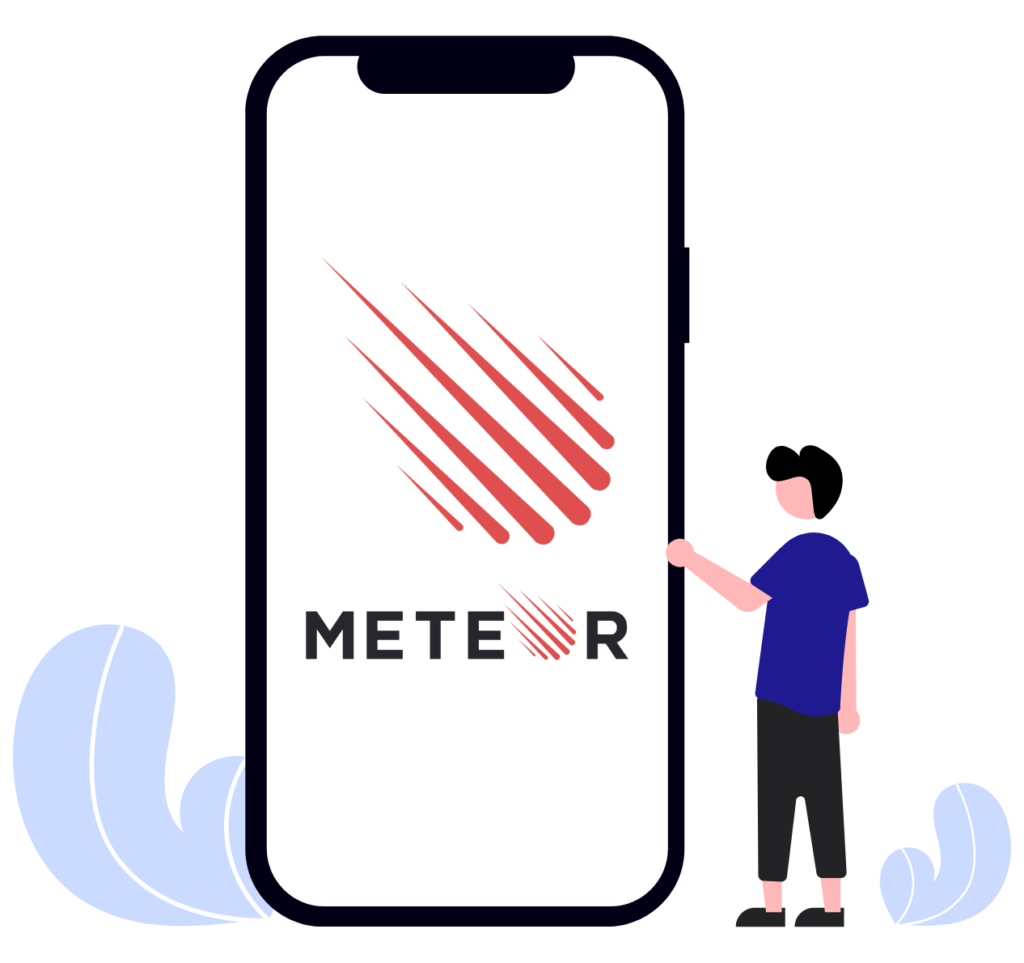Why do businesses choose MeteorJS for App Development?
Meteor, also known as MeteorJS, is a popular open source JavaScript framework used by startups and other business organisations for their web and mobile applications. It is one of the advance frameworks for developing cross-platform mobile apps on both the iOS and Android platforms, and it is written in Node.js. The framework did experience a brief halt due to internal company changes. However, when Tiny Capital purchases it in 2019 – a family of companies that also owns Dribble and Unicorn Hunt – the MeteorJS development framework was given a second chance.
MeteorJS is a full-stack JavaScript framework made up of a collection of packages and libraries that links together. MeteorJS use ideas from other libraries and frameworks, which makes prototyping applications very simple. It makes web development much easier to understand. Because it is quite flexible, it does not necessitate much code, which means fewer errors and, in most cases, a high-quality and stable result.
Building your next project with this framework will undoubtedly set your business web app apart from the competition, resulting in massive growth and engagement. LoreMine Technologies specialises in MeteorJS development and the delivery of next-generation web and mobile applications. We use the MeteorJS framework’s features to create secure and scalable web and mobile applications that provide a consistent user experience across all devices.
Let’s look at how MeteorJS development can help your business grow more efficiently while spending less time and money on development.
Key Advantages of Using MeteorJS for Business App Development

Convenient to use
MeteorJS provides complete developer convenience. The framework provides perfect real-time data synchronisation and allows for simple project collaboration. It includes a LiveReload feature that allows you to see all of the changes you make without having to rebuild the project or refresh the browser page. Meteor also requires less coding, which results in fewer bugs, less development time, and higher quality development.
Easy Deployment
It is much easier to deploy a web app using meteor than other frameworks. This framework is supplemented by Galaxy, a PaaS solution for hosting MeteorJS apps on Amazon AWS.
This hosting platform significantly reduces deployment and DevOps time. Sign in to Galaxy, add some environmental variables to the setting file, and enter a single line of code to deploy an app.
Meteor is reactive
MeteorJS is best known for its reactive user interface. It enables rapid automatic changes to the user interface in response to data updates. This function requires because no one wants to reload the page to see the most recent updates. Meteor effectively implements Reactive UI, making the website more responsive and user-friendly.
Meteor has a sizable user base
This framework has a large community behind it. Version 1.10, which includes many important improvements with Cordova, MongoDB, skeleton, Galaxy, and DevTools, creates with the help of more than 40 community developers. Get answer for all of your questions by the large community on Stack Overflow or Reddit.
Meteor can be extended
MeteorJS integrates easily with hundreds of other solutions. Atmosphere.js is a large database of Meteor extensions use by the Meteor community. Meteor also has 14,079 different packages as of April 2020. With so many intelligent packages available, you can actually save a significant amount of development time. Meteor can also be easily integrates with various JavaScript libraries, such as React or Bootstrap.
Meteor is simple to learn
It is extremely simple to learn. It is an excellent choice for both aspiring developers who have just begun learning programming and developers with experience who want to master JavaScript. Meteor coding is simple and efficient, with no strict structural rules to adhere to.
Meteor allows you to use a single language throughout the project
MeteorJS allows you to create the entire project in a single language: JavaScript. Meteor can be used for the web app’s backend, and React can be used for the front end. You can integrate your project with Cordova or React Native to create a mobile application. Finally, using DDP (Distributed Data Protocol), a Meteor feature, you can connect the mobile app to the Meteor back-end. Finally, JavaScript is used to construct your entire project.
So, what’s next?

The only limit with MeteorJS will be your imagination. Contemporary development is becoming increasingly web-centric. MeteorJS, which provides a comprehensive platform for developers, perfectly reflects this trend. It will enable you to easily create a seamless integration of mobile and web applications. Meteor is ideal for your app’s tech stack if you are a business owner. It will allow you to reduce development time and costs. Also, if you want to start prototyping, Meteor should be the quickest way to do so.
